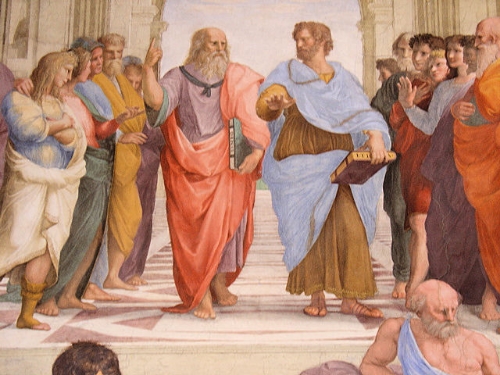Clarity often emerges on the far side of confusion. We have to go through the tangle to find the thread.
The ancient philosophers had a fascinating idea that few things in the world are intrinsically good or bad, but rather have their value residing in how we use them. How do they function in our lives? This can be true of confusion. Since the time of Socrates, people have wondered why Plato’s Dialogues portray him as questioning people about important concepts they thought they understood—like courage, or piety, or justice—and shaking them up, demolishing their felt certainties, and leaving them in confusion without a positive resolution or a “right answer” at the end of the conversation. It may be because Socrates thought of the confusion he left them in as having a power that a simple certainty could never possess. It might goad them into wrestling with ideas they’d taken for granted, and in the process they might not only find the truth themselves but be transformed by the search, something an easy answer could never provide.
In the opening of the Odyssey, Telemachus wants to know whether his father Odysseus is still alive, years after the Trojan War. The man has not yet returned home. The young man asks the goddess Athena, who knows the answer. But rather than just telling him and giving us a much shorter book, she suggests that he travel to a distant land to seek the answer, knowing that what he really needs more than information is the transformation that only such a risky journey can provide, if he is one day to be the properly strong partner for his father to help save their land from arrogant and rapacious enemies.
We like to think of questions as simple transactions. I give you a question, you give me an answer. Loop closed. Transaction complete. But the best questions aren’t like that at all. They take us on an adventure of search and understanding that’s much deeper than simply finding a true sentence at the end of the road. We become seasoned travelers in pursuing our concern. Like Telemachus, we get stronger. And we may be led through various stages of bewilderment and confusion along the way that cause us to rethink, reimagine, and discover what we might otherwise never have been able to think. It may all cause us to become what we otherwise might not have been able to be.
There are obviously some bad forms of confusion, for example, a drug or dementia induced mental fog, a terribly troubled state of mind that can produce a fight or flight panic, or a fervent wish to just shut down thought altogether. But there may be many good kinds of confusion as well and we need to appreciate them for what they’re worth.
Jean Paul Sartre once said of boredom that it’s a state of simultaneously too much and too little. We might say the same about many forms of confusion. It’s perhaps a state of mind that involves both too much and too little. Too much information, not enough knowledge; too much knowledge; not enough understanding; too much understanding but not enough wisdom; too much peripheral complexity, but not enough grasp of the essentially simple core.
Don’t fear the confusion that comes from real adventure, from grappling with new things. Don’t let it tie you in a knot. Take a breath, center yourself, and live into the adventure. Great clarity may eventually result.
























